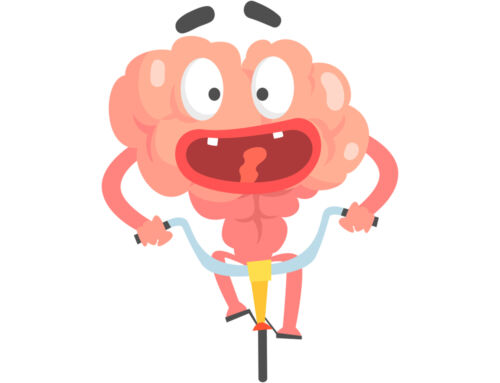If you’re struggling with a substance use disorder, there’s a good chance you feel powerless, with a strong feeling there’s no escape. Drug or alcohol addiction has the power to impact the way your brain works, leading to compulsive addictive behaviors and prioritizing harmful activities. As proven by the millions of people in recovery in America, there’s a way out of alcohol and drug addiction. There are many psychological factors at play in someone who struggles with addiction, and therapy is one of the most important aspects of an addiction treatment program.
Austin, Texas is no different. Over a 10 year period, Austin (Travis County) had one of the highest mortality rates from opioid abuse, heroin abuse and benzodiazepines in the state of Texas.
Continue reading to discover the types of group therapy and individual therapy we use at Alta Loma Transformational Services and the benefits of each for the recovery process.
Don’t become a statistic in Austin (Travis County), become part of the solution to overcoming addiction. Alta Loma Transformational Services is a men’s focused Drug and Alcohol rehab facility, located in Georgetown.
What Is Therapy for Addiction?
The National Institute on Drug Abuse defines addiction as a chronic disease and states that most people require long-term treatment to stop and recover for good. It also outlines that therapy for addiction should help the individual:
- Stop using drugs
- Avoid relapse
- Be a productive member of society, at work and as part of their family
There are some important caveats when it comes to treatments for substance abuse. While there’s no single treatment that’s been proven to work, an individualized combination of approaches is generally accepted as the best approach. NIDA outlines the following principles for effective mental health counseling for people who abuse drugs and alcohol:
- Different people respond better to different substance abuse therapies.
- Addiction is a disease that affects functioning and behavior, but despite being highly complex, it’s treatable.
- Effective treatment is person-centered, not just a generic approach to eliminating a harmful drug or alcohol use disorder.
- Intake to treatment centers should be fast.
- Counseling and behavioral therapies are the most common practices.
- Long-term treatment is most effective because it provides enough time for self-discovery and resetting habits.
- Treatment plans should be customized and revisited regularly to ensure they meet the client’s needs.
- The possibility of underlying mental health problems should be addressed.
- Detox is only the first step of the recovery process.
Why Are Multiple Therapeutic Techniques Offered at Substance Abuse Treatment Programs?
There’s a strong emphasis on individualized addiction treatment because people are so varied, with wildly different experiences and genetic makeup. In many instances, it’s a mixture of the various approaches that deliver the best results. As such, the best substance abuse treatment programs offer a range of different modalities to help each client find the combination that works best.

Addiction Treatment Options at Alta Loma Transformational Services
At Alta Loma, we’re deeply committed to every client who walks through our doors. We’re passionate about people’s ability to affect enormous change in their own lives once they’re given the tools and resources to do so. Below is an explanation of the main therapeutic approaches we use to treat substance abuse and help people help themselves.
Cognitive Behavioral Therapy (CBT) for Drug and Alcohol Addiction
CBT is one of the most widely used and effective substance abuse treatment methods. Its premise is that behavioral disorders such as addiction are largely caused by deeply ingrained dysfunctional thought patterns and beliefs. It’s a highly adaptive approach that can be applied in group, individual and family settings. Some of the aims of CBT therapists include:
- Acknowledging the impact of the past but focusing more on the present moment while looking toward the future
- Completing assignments in daily life to help you apply what you learn in sessions to your recovery
- Learning to be mindful of and eventually interrupt patterns of negative thinking
- Confronting self-limiting beliefs to improve self-esteem and self-awareness
12-Step Addiction Recovery Support Groups
The 12 steps originated around 100 years ago when Alcoholics Anonymous was founded. It’s emerged as one of the leading addiction treatment methods and is widely applied to recovery from various destructive behaviors. As you might have guessed, there are 12 steps to follow and internalize. These steps help you understand yourself and the world a little better and empower you to gain the necessary mental strength to see recovery through to the maintenance stage.
Motivational Interviewing for Substance Use Disorders
Motivational interviewing is a technique widely deployed by addiction counselors to help individuals strengthen their commitment to recovery. For many people, drugs and alcohol act as coping mechanisms for difficult emotions or to mask trauma. This is one of the reasons it can be so difficult to find the motivation to stop using drugs or alcohol. MI helps you gain clarity and find meaning in the recovery process, as well as helps you develop a strong ambition to get sober.
Person-Centered Individual Therapy for Drug and Alcohol Use Disorders
The person-centered approach eliminates the hierarchy in a patient-therapist relationship, so you don’t feel like you’re speaking to an authority figure. It aims to boost the self-esteem of the client and reduce unhelpful feelings such as misplaced guilt, defensiveness, shame and insecurity. The therapist offers unconditional positive regard and unflinching support to the client, helping to facilitate self-actualization and self-belief.
Family Therapy to Treat Addiction
Family therapy is crucial for many people, especially if you share a household with others. Most members of the public aren’t experts in behavioral and mental health, and it’s important that your loved ones understand what you’re going through so they can respond in a manner that’s constructive to you and themselves.
What’s more, addiction can lead to major issues with communication and boundary-setting, and a counselor can help you work through these issues to strengthen your support network.

Psychoeducation
One of the core components of addiction is self-deception. While many people who aren’t addicted to substances see the health risks as obvious, people who are in the throes of the disease are usually oblivious. Psychoeducation can help you overcome the cognitive dissonance that often comes with addiction and give purpose and meaning to your recovery process.
Experiential Therapy
Experiential therapy is vital for the recovery process. While group sessions and individual counseling underpin recovery, it’s important you’re not overwhelmed by the process. Sober experiences help you reconnect with your peer group and rediscover the magic of nature and adventure.
Transform Your Life at Alta Loma
Alta Loma Transformational Services is a male-focused rehabilitation center for your mind, body and spirit. From day one we will work with you to find a therapy that will benefit your road to recovery – let it be from substance abuse or a mental illness. We have multiple facilities, which address specific needs and steps in the recovery process.
The road to recovery from addiction starts with you – it starts with calling us today!



